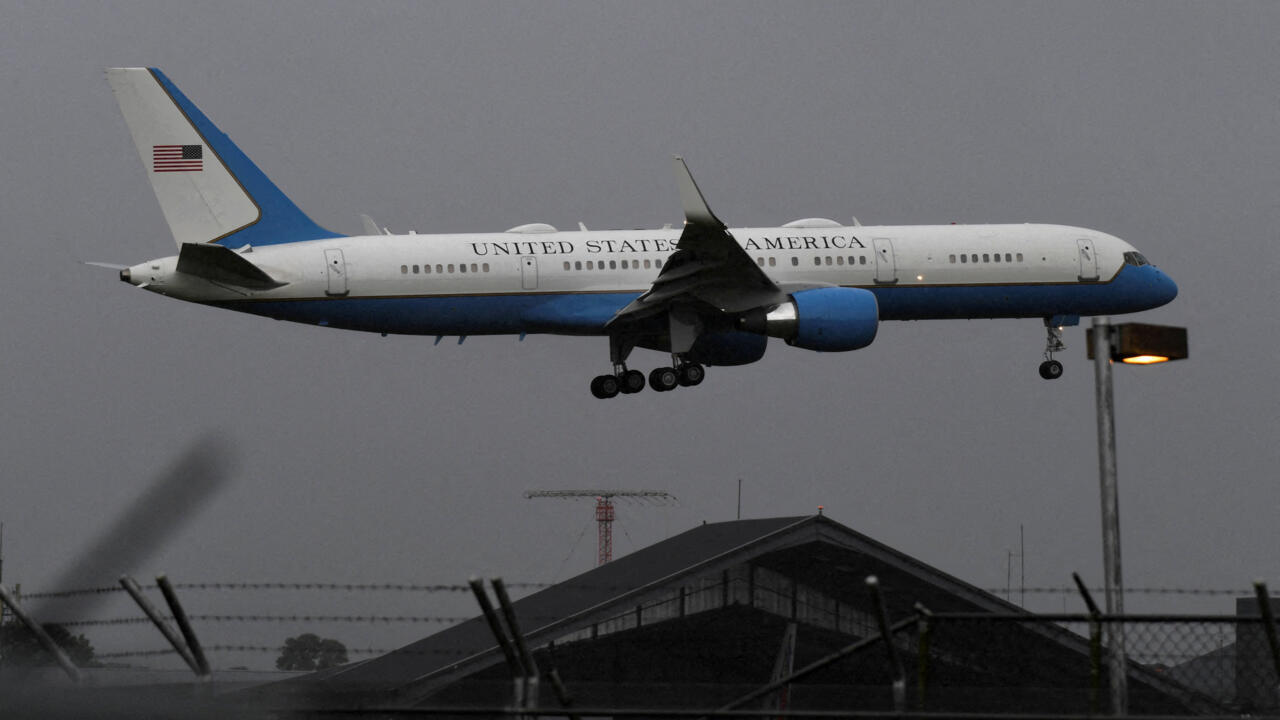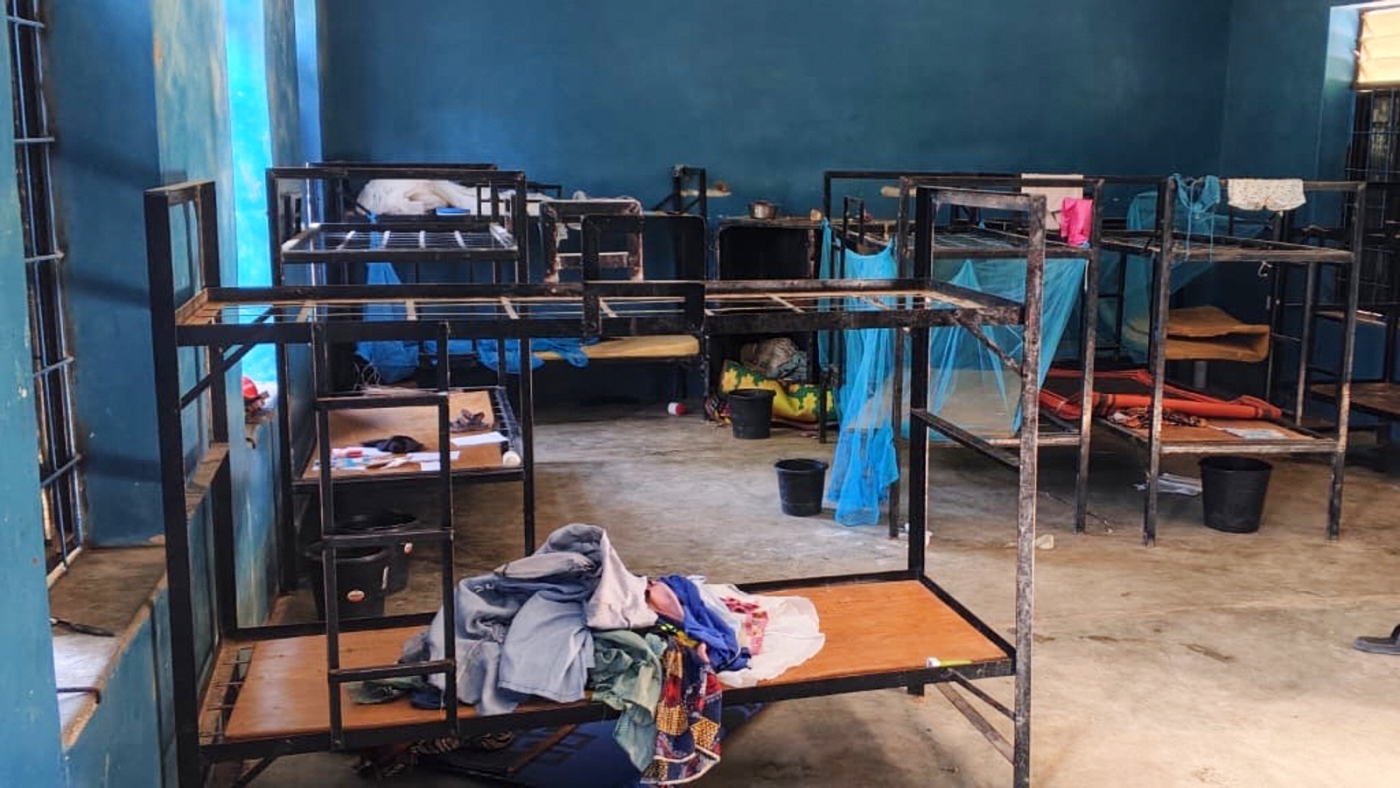Antonio Guterres tells Al Jazeera, ceasefire in Gaza remains ‘fragile’ as more aid is needed to ‘eliminate famine’.
Doha, Qatar – United Nations Secretary-General Antonio Guterres has warned that any stabilisation force in Gaza must have “full international legitimacy” to support Palestinians in Gaza.
In an interview with Al Jazeera Arabic on Tuesday at the Second World Summit for Social Development, Guterres said the truce achieved in the besieged and bombarded coastal enclave after “horrific suffering and famine” remained delicate and needs international guarantees.
Recommended Stories
list of 3 items- list 1 of 3Doha declaration ‘booster shot for development’ amid global uncertainty: UN
- list 2 of 3Turkiye: Hamas will transfer Gaza’s governance to committee of Palestinians
- list 3 of 3RSF digging mass graves in Sudan’s el-Fasher to ‘clean up massacre’: Expert
“It is important the force that is created have full international legitimacy to deal with the parties and the population of Gaza.”
The proposed international force for Gaza was part of United States President Donald Trump’s 20-point Gaza peace plan.
But which nations comprise that force remains contentious. Israel, with US backing, has already said it will not accept Turkiye, a key Gaza ceasefire mediator, having any role on the ground. Turkiye, which has repeatedly condemned Israel’s genocidal war in Gaza, held a top-level meeting this week demanding Israel stop violating the truce and allow crucial humanitarian aid to enter the embattled Palestinian enclave.
Despite criticism, Guterres said a mandate from the UN Security Council (UNSC) remains “the source of legitimacy” for any stabilisation force, warning that without it, the risk of renewed conflict remains high.
The UN chief also praised the US for bringing Israel to accept the current ceasefire.
“The government of Israel had other intentions … which were to conduct the war up to the end, but the Americans, at a certain moment, understood that enough was enough,” he noted.
Nevertheless, he warned that the ceasefire remained delicate.
“It was essential to stop the war and release hostages … but this is all very fragile,” he said.
According to Gaza officials, Israel has violated the deal upwards of 80 times, killing hundreds of Palestinians in the last four weeks.
Moreover, Guterres warned that aid entering the Gaza Strip remains far below what is needed.
“Humanitarian aid has improved … but we are far from what is necessary to eliminate famine quickly, and to create the conditions for the people in Gaza to have the very, very minimum that is necessary for dignity in life,” he warned.
Fighting in Sudan
On the brutal civil war in Sudan, Guterres described the situation as “absolutely intolerable” in the wake of the fall of el-Fasher city to the paramilitary group Rapid Support Forces (RSF).
“We are seeing that after el-Fasher being taken by the RSF, all kinds of horrible violations of the most basic rights – sexual violence, people being killed, being denied humanitarian aid,” he told Al Jazeera.
El-Fasher, the capital of North Darfur, was taken by the RSF on October 26, following the withdrawal of the Sudanese army. The two sides have been battling for control of Sudan since April 2023 in what the UN has called the world’s worst humanitarian disaster.
Guterres said while the UN was working with other organisations, including the African Union, to bring the warring sides to the dialogue table, it “will be extremely difficult to obtain” following what happened in el-Fasher.
He said the Sudanese army and the RSF must face “enormous pressure” from the international community, while stressing that foreign actors must also stop fuelling the conflict.
“Many weapons are coming from the outside. And it is absolutely essential also that all these forms of foreign intervention in Sudan end, because this needs to be solved by the Sudanese,” he said.
UNSC reform
Guterres also told Al Jazeera that the council no longer “corresponds” to today’s world.
“It corresponds to the world of 1945 with some small adjustments,” the UN chief said.
“Europe has three members as permanent members … Africa has no members. Latin America has no members. Asia has one member. It’s clear it no longer corresponds to the world of today.”
He called for reforms to make the UNSC more representative and effective, including two permanent African seats and limits on the use of vetoes in cases of mass atrocities.
The US has vetoed a litany of resolutions condemning Israeli actions in Gaza, the occupied West Bank and beyond, giving its ally unconditional diplomatic cover.
“There were two interesting proposals from France and the UK limiting the exercise of the right of veto in situations of extreme violation of all rights … and this I think would be a very interesting reform to consider,” he added.

 1 month ago
16
1 month ago
16










 English (US) ·
English (US) ·